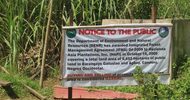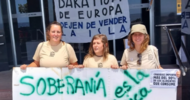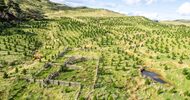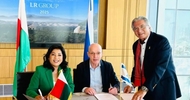“We are aggressively looking for new areas in Sulawesi, Central Kalimantan and South Sumatra that are environmentally safe to expand our oil-palm footprint,” says president-director of the company’s oil-palm plantations in Sumatra.
People in Indonesia consider the food crisis as an excuse, deliberately created so that corporations could assert control over the necessary business which is central to most people’s lives.
Wilmar International has taken a majority stake in a palm plantation venture in Indonesia’s Papua owned by Noble Group, giving the world’s biggest palm oil supplier a toehold in the province where it also hopes to grow sugar cane.
- Today Online
-
23 February 2013
"Nigeria has offered land for us, no matter how large we need," says
Indonesian Industry Minister MS Hidayat
‘Feed Indonesia, then feed the world’. Backed by this slogan Indonesia companies, and companies from South Korea, China and Singapore as well, are buying land in the Indonesian province of West Papua in order to grow crops.
- Awas MIfee
-
11 February 2013
Indofood Sukses Makmur is planning to acquire a 50 percent stake in a plantation company in Brazil through its subsidiary Indofood Agri Resources, as the company expands its sugar plantation business.
- Jakarta Globe
-
29 January 2013
Leurs terres cédées par le gouvernement aux planteurs malaisiens et indonésiens, des paysans du Liberia dénoncent des accords qui les ignorent: après 15 ans de guerre civile, des nouvelles luttes s'annoncent.
“We don’t want to work for palm oil companies, we want our forest back,” says Christianus Ungkujay
- Jakarta Globe
-
20 January 2013
Special Dec 2012 edition of Down To Earth (Indonesia) on land grabbing
Report from Indigenous Peoples Organization of Bian Enim
- Tabloidjubi.com
-
21 December 2012
he Roundtable on Sustainable Palm Oil (RSPO) has upheld a complaint lodged by the London-based Environmental Investigation Agency (EIA) against a rogue palm oil company and has ordered it to immediately stop clearing customary forests in Indonesian Borneo.
This case study is conducted by Aliansi Gerakan Reforma Agraria (AGRA) in close coordination with the Pesticide Action Network Asia and the Pacific (PAN AP).
















